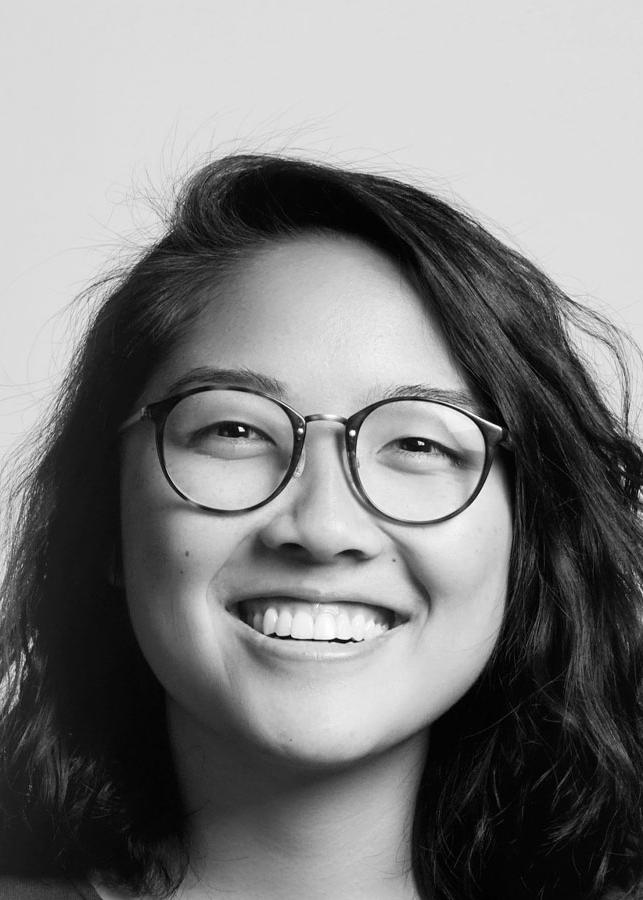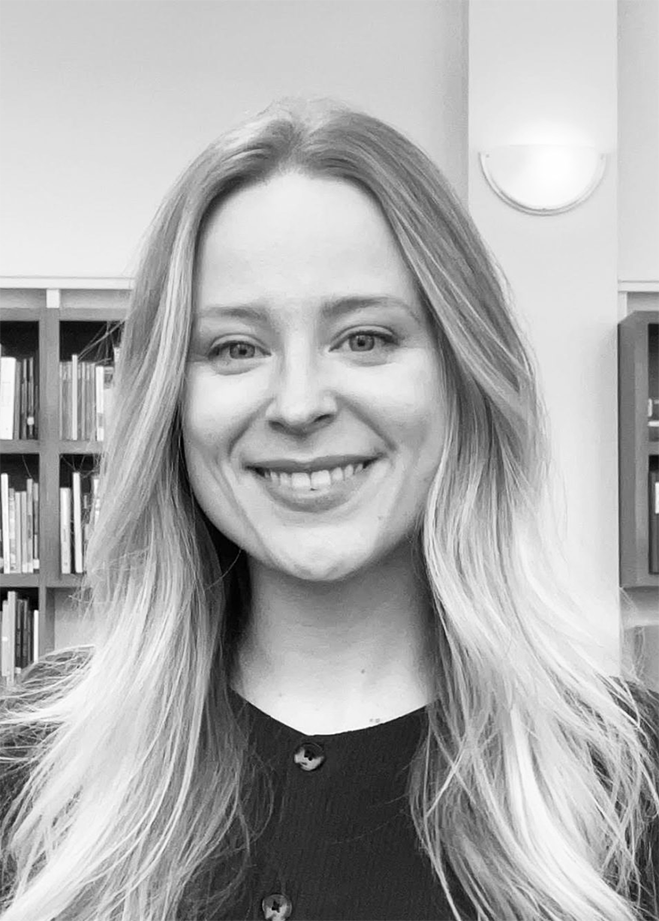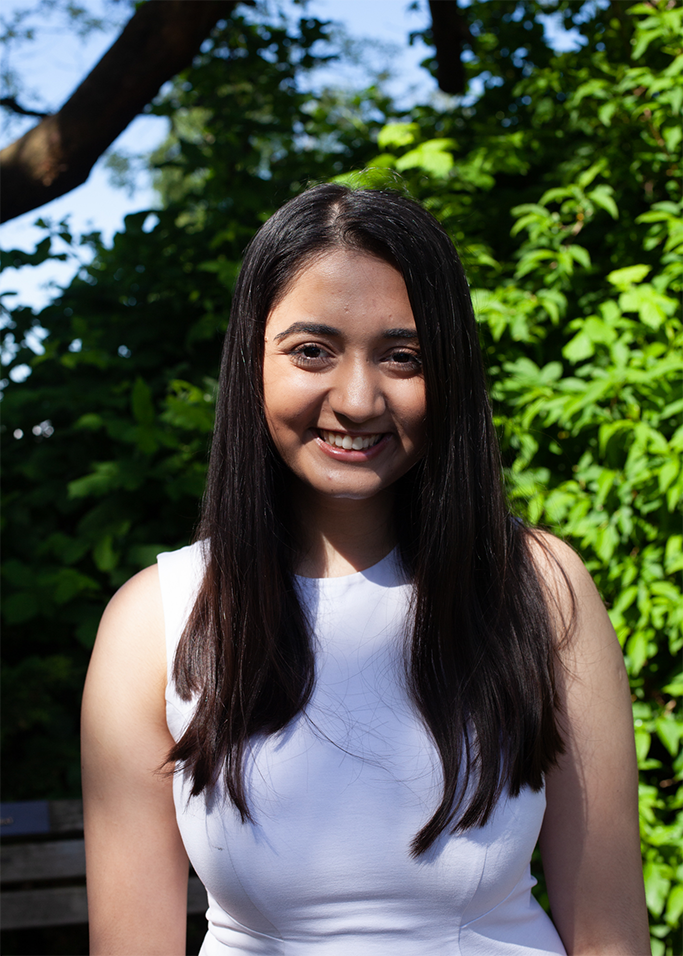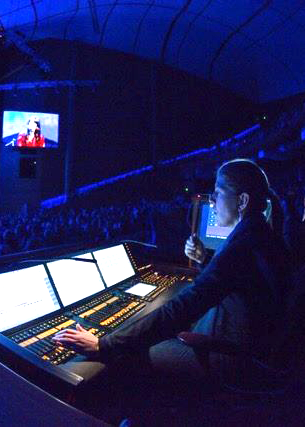Michelle Kim
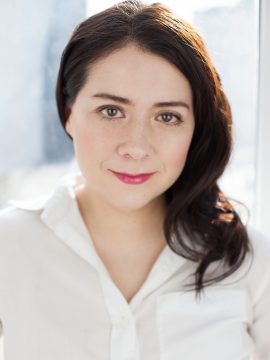
A version of this interview originally appeared on the Asian Studies website, September 2018.
Tell us a little about yourself. How did you became interested in Asian languages and cultures?
I was born and raised in Surrey, BC. My mother is Korean and moved from Seoul to Canada in the late 70s and met my dad who is of British ancestry. They married and had me and my brother. I was in the French Immersion program from Kindergarten until Grade 10, then in the International Baccalaureate Program. When I arrived at UBC, I was immediately drawn to the Department of Asian Studies because I think I was trying to make sense of my identity, so I took Korean language, East Asian history, and Korean literature. It was meaningful and important time for me as I learned about and appreciated my culture.
What choices did you make at UBC that contributed to your career success / journey?
In the Asian Studies department, I look Korean literature, Korean, and East Asian history courses. Outside of the department, I took creative writing, French, Canadian Literature, American Literature, Political Science, Film History… the list goes on. I think the best thing I did as an undergrad was to explore and take a wide variety of courses as it somehow made me believe that it was possible to have a career working with various mediums.
What was your first job after graduation and what other jobs did you have before your current position?
My first job out of university was as a journalist for the BBC in London. It was an incredible experience and I worked with some of the kindest and sensationally smart people I’ve met to date. Because I wanted to do something more creative, I transitioned into filmmaking and writing fiction. However, I think I still approach new projects like a journalist; I begin with research, then I interview people, then I synthesize all the information into a story—only it’s a film or a book.
Is your current career path as you originally intended? What challenges did you face in launching your career?
It was my original career path, yes, in the sense that it was what I dreamed of doing as a little girl. As I grew older, I began to contort myself to others’ expectations and went down a path for a while that was not mine. I’m so grateful I shifted gears when I did and now work doesn’t even feel like work, which is an amazing feeling.
What makes you proud about your current job? How does it relate to your degree?
There is this great quote by Roger Ebert:
“We all are born with a certain package. We are who we are: where we were born, who we were born as, how we were raised. We’re kind of stuck inside that person, and the purpose of civilization and growth is to be able to reach out and empathize a little bit with other people. And for me, the movies are like a machine that generates empathy. It lets you understand a little bit more about different hopes, aspirations, dreams and fears. It helps us to identify with the people who are sharing this journey with us.”
For me, storytelling not only generates empathy, but I think it also makes people feel less alone with their pains and struggles. I’ve had readers of my book and viewers of my film come up to me and say that they feel like lonely or odd because they identified so much with the characters in the film/book. Hearing such things means so much to me.
I think at UBC, and especially in the Department of Asian Studies, there was so much care happening. Though I learned a lot from books and the material being taught, I learned a lot from generosity, attention, and care given by my professors to me and other students. I like to think I’m forwarding care that to my audience now.
Has learning an Asian language helped you achieve your personal or professional goals? What tips do you have for students who are keen to play the ‘language card’ in their career development?
Well, my next film is a Korean language film. The biggest tip I would give to students is to keep practicing the language on a regular basis and to participate in an immersive program for at least a few months, at least once.
Are there any other achievements or activities you would like to highlight?
I am also a filmmaker and actor. My directorial debut, The Tree Inside, won audience choice awards for best feature film at the Vancouver Asian Film Festival and the Northwest Filmmakers’ Festival in Portland.
What advice would you give to students and alumni interested in breaking into your industry?
Pursue your passion and dreams as soon as you can because you’ll end up trying to eventually, anyway. Might as well start there and have more time doing what you love.
Michelle Kim



A version of this interview originally appeared on the Asian Studies website, September 2018.
Tell us a little about yourself. How did you became interested in Asian languages and cultures?
I was born and raised in Surrey, BC. My mother is Korean and moved from Seoul to Canada in the late 70s and met my dad who is of British ancestry. They married and had me and my brother. I was in the French Immersion program from Kindergarten until Grade 10, then in the International Baccalaureate Program. When I arrived at UBC, I was immediately drawn to the Department of Asian Studies because I think I was trying to make sense of my identity, so I took Korean language, East Asian history, and Korean literature. It was meaningful and important time for me as I learned about and appreciated my culture.
What choices did you make at UBC that contributed to your career success / journey?
In the Asian Studies department, I look Korean literature, Korean, and East Asian history courses. Outside of the department, I took creative writing, French, Canadian Literature, American Literature, Political Science, Film History… the list goes on. I think the best thing I did as an undergrad was to explore and take a wide variety of courses as it somehow made me believe that it was possible to have a career working with various mediums.
What was your first job after graduation and what other jobs did you have before your current position?
My first job out of university was as a journalist for the BBC in London. It was an incredible experience and I worked with some of the kindest and sensationally smart people I’ve met to date. Because I wanted to do something more creative, I transitioned into filmmaking and writing fiction. However, I think I still approach new projects like a journalist; I begin with research, then I interview people, then I synthesize all the information into a story—only it’s a film or a book.
Is your current career path as you originally intended? What challenges did you face in launching your career?
It was my original career path, yes, in the sense that it was what I dreamed of doing as a little girl. As I grew older, I began to contort myself to others’ expectations and went down a path for a while that was not mine. I’m so grateful I shifted gears when I did and now work doesn’t even feel like work, which is an amazing feeling.
What makes you proud about your current job? How does it relate to your degree?
There is this great quote by Roger Ebert:
“We all are born with a certain package. We are who we are: where we were born, who we were born as, how we were raised. We’re kind of stuck inside that person, and the purpose of civilization and growth is to be able to reach out and empathize a little bit with other people. And for me, the movies are like a machine that generates empathy. It lets you understand a little bit more about different hopes, aspirations, dreams and fears. It helps us to identify with the people who are sharing this journey with us.”
For me, storytelling not only generates empathy, but I think it also makes people feel less alone with their pains and struggles. I’ve had readers of my book and viewers of my film come up to me and say that they feel like lonely or odd because they identified so much with the characters in the film/book. Hearing such things means so much to me.
I think at UBC, and especially in the Department of Asian Studies, there was so much care happening. Though I learned a lot from books and the material being taught, I learned a lot from generosity, attention, and care given by my professors to me and other students. I like to think I’m forwarding care that to my audience now.
Has learning an Asian language helped you achieve your personal or professional goals? What tips do you have for students who are keen to play the ‘language card’ in their career development?
Well, my next film is a Korean language film. The biggest tip I would give to students is to keep practicing the language on a regular basis and to participate in an immersive program for at least a few months, at least once.
Are there any other achievements or activities you would like to highlight?
I am also a filmmaker and actor. My directorial debut, The Tree Inside, won audience choice awards for best feature film at the Vancouver Asian Film Festival and the Northwest Filmmakers’ Festival in Portland.
What advice would you give to students and alumni interested in breaking into your industry?
Pursue your passion and dreams as soon as you can because you’ll end up trying to eventually, anyway. Might as well start there and have more time doing what you love.
